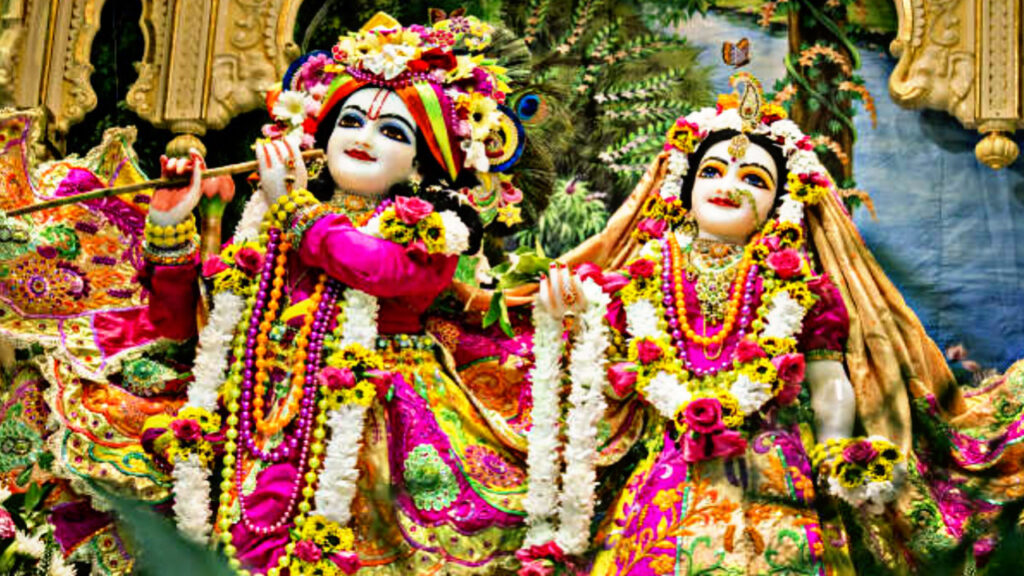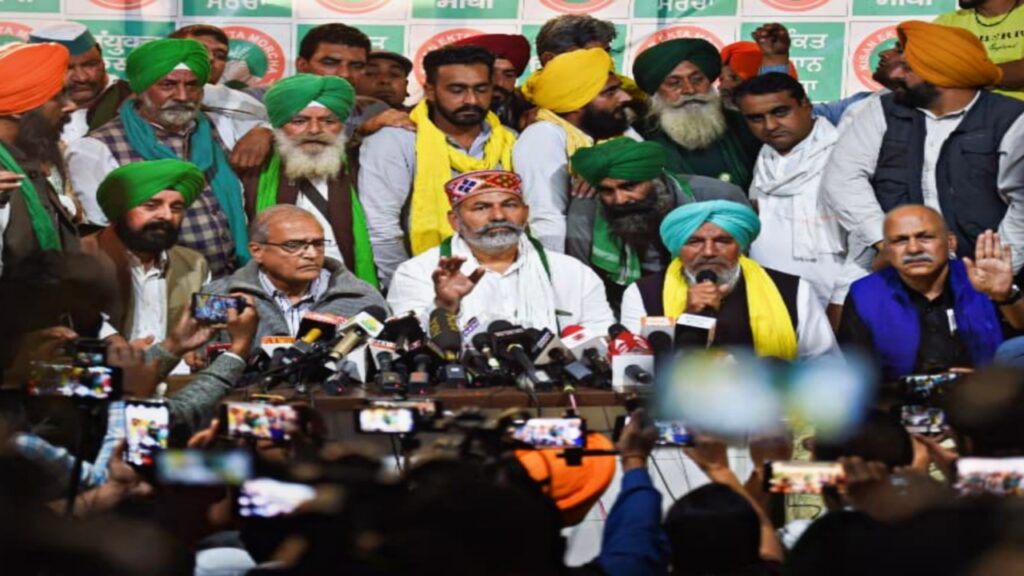Janmashtami
Janmashtami, also known as Gokulashtami, is one of the most important and joyous festivals in Hinduism. Celebrated with great devotion and enthusiasm across India and in many parts of the world, Janmashtami marks the birth of Lord Krishna, an incarnation of Lord Vishnu, who is revered as the god of compassion, love, and protection. But why is this day considered so special in the Hindu religion? Let’s explore the significance of Janmashtami and why it holds a special place in the hearts of millions of Hindus worldwide.
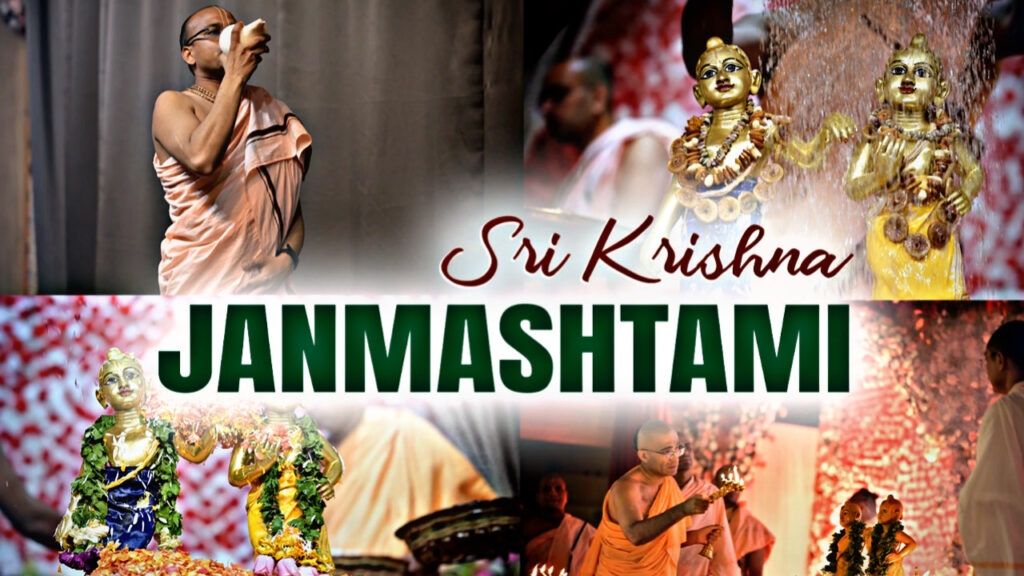
The Birth of Lord Krishna
Janmashtami is celebrated on the 8th day (Ashtami) of the Krishna Paksha (dark fortnight) in the month of Bhadrapada according to the Hindu lunar calendar. It is believed that Lord Krishna was born at midnight in a prison cell in the city of Mathura to Devaki and Vasudeva. This divine birth took place in the Dwapara Yuga, around 5,000 years ago, and marked the arrival of a savior to defeat evil and restore dharma (righteousness) in the world.
Lord Krishna’s birth is significant because he played a crucial role in guiding the people of his time through his teachings and actions. His life and teachings are a symbol of love, wisdom, and the eternal battle between good and evil. The most famous of Krishna’s teachings are found in the Bhagavad Gita, where he imparts profound lessons about life, duty, and devotion to Arjuna on the battlefield of Kurukshetra.
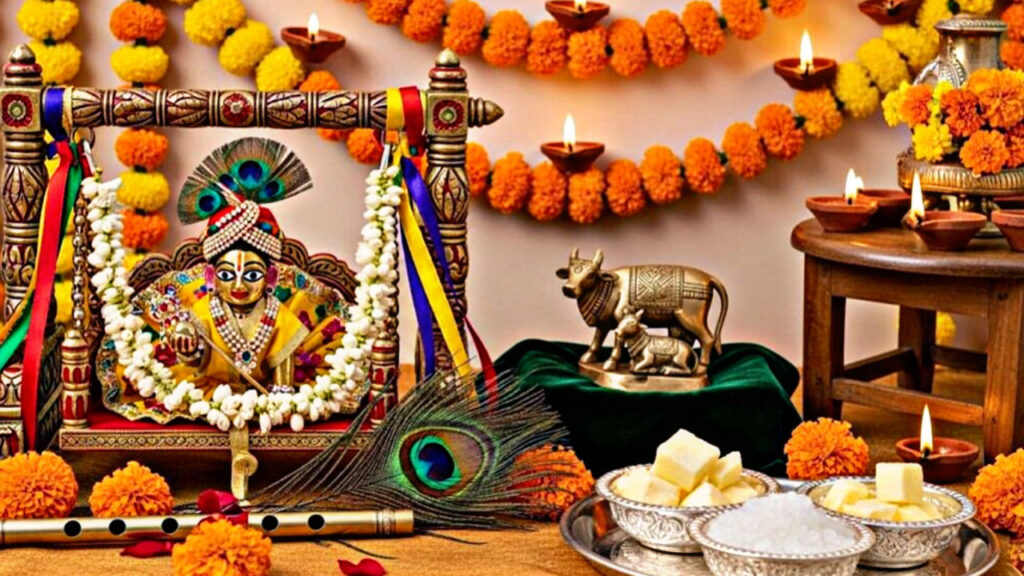
The Significance of Krishna’s Incarnation
Lord Krishna’s birth is believed to have been a divine intervention to end the reign of the wicked King Kamsa, who had been tormenting the people of Mathura. Krishna’s life is a series of miracles and divine acts, including the lifting of the Govardhan Hill to protect his devotees from torrential rains and the killing of numerous demons sent by Kamsa to harm him. The stories of his childhood, his playful interactions with the Gopis (milkmaids), his wisdom, and his role in the Mahabharata, make him one of the most revered and adored deities in Hinduism.
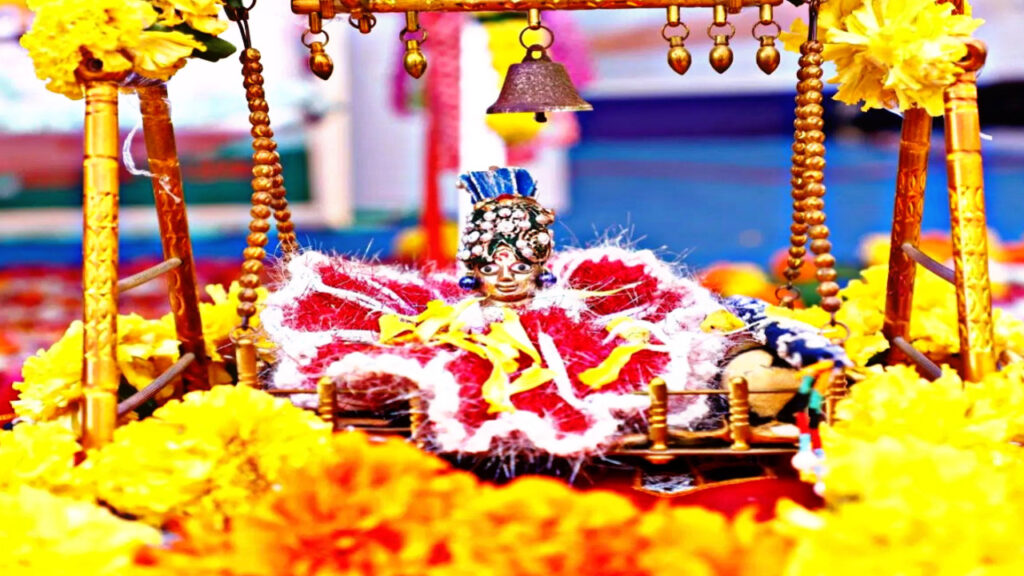
His teachings emphasize the importance of love, devotion, and duty. He is often depicted as a playful child, a compassionate lover, and a wise guide, each of which appeals to different aspects of human nature.
Rituals and Celebrations
Janmashtami is observed with much fervor and devotion. Devotees fast, chant hymns, perform devotional dances (like dandia and garba), and engage in acts of service. In many parts of India, especially in Vrindavan, Mathura, and Dwarka, grand celebrations are held, where temples are beautifully decorated, and reenactments of Lord Krishna’s life are performed. One of the most popular events is the Dahi Handi festival, where groups of young men form human pyramids to break a pot of curd, symbolizing Krishna’s playful stealing of butter.

At home, people often observe a fast until midnight, the time when Krishna is believed to have been born. As the clock strikes midnight, devotees sing bhajans (devotional songs), offer prayers, and break their fasts with prasad (consecrated food). The chanting of Krishna’s name, Hare Krishna, is a common practice during the celebrations, invoking his blessings and expressing devotion.
Why is Janmashtami Important?
Janmashtami is not just a celebration of the birth of a deity; it is also a reminder of the eternal principles that Lord Krishna stood for. It teaches followers the values of love, compassion, and righteousness. It inspires individuals to live a life of devotion and to adhere to dharma, the moral and ethical principles that govern human life. The festival encourages people to surrender their ego and worldly desires in favor of spiritual growth and devotion to God.
In Hinduism, Lord Krishna is considered the epitome of divine love and is regarded as the supreme personality who embodies the essence of life itself. His teachings and divine acts continue to guide and inspire millions around the world.
Janmashtami holds a deep spiritual significance in Hinduism. The birth of Lord Krishna symbolizes the triumph of good over evil and the manifestation of divine wisdom. The celebrations surrounding Janmashtami not only bring communities together but also offer a time for reflection on Krishna’s teachings and the deeper meanings of life. It is a day to celebrate love, devotion, and the eternal connection between the divine and the human soul.

